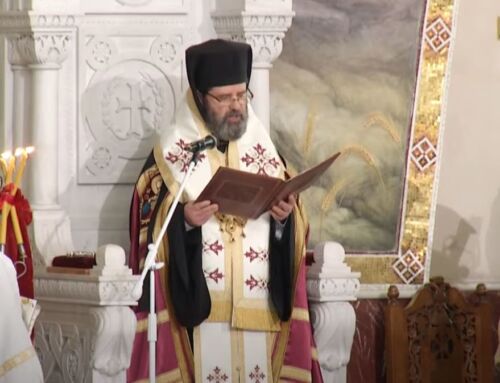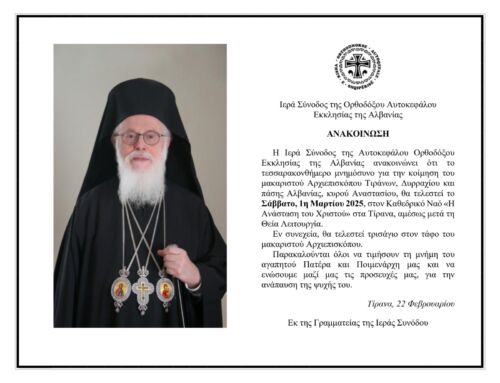In the Orthodox tradition, humility has often been called the “mother of all virtues,” and pride has been named “the cause of all sin.” The wise and honest person is the one who is humble.
Pride goes before destruction, and a haughty spirit before a fall.
It is better to be of a lowly spirit with the poor, than to divide the spoils with the proud.
A man’s pride will bring him low, but he who is lowly in spirit will retain honor. (Proverbs 16:18, 16:19, 29:23)
According to the Gospel, in the Song of the Virgin, the Lord scatters the proud in the imagination of their hearts and exalts those who are humble and meek. (Cf. Luke 1:51-52) This is the exact teaching of Jesus.
For everyone who exalts himself will be humbled, and he who humbles himself will be exalted. (Luke 14:11, 18:14, Proverbs 3:34)
Humility does not mean degradation or remorse. It does not mean effecting some sort of demeaning external behavior. It does not mean considering oneself as the most vile and loathsome of creatures. Christ Himself was humble and He did not do this. God Himself, according to the spiritual tradition of the Church, has perfect humility, and He certainly does not act in this way.
Genuine humility means to see reality as it actually is in God. It means to know oneself and others as known by God – a power, according to Saint Isaac, greater than that of raising the dead! The humble lay aside all vanity and conceit in the service of the least of God’s creatures, and to consider no good act as beneath one’s dignity and honor. Humility is to know oneself, without the grace of God, as dust, sinful and dead.
God is humble because He cares about the least: the birds in the air, the grass in the fields, the worst of sinners. (Cf. Matthew 6:25-30) Christ is humble because He associates with the lowly, becoming the slave of all in taking on Himself the sins of the world.
If I then, your Lord and Master have washed your feet, you also ought to wash one another’s feet. For I have given you an example, that you also should do as I have done to you. (John 13:14-15) You know that the rulers of the pagans lord it over them, and their great men exercise authority over them. It shall not be so among you; but whoever would be great among you must be your servant, and whoever would be first among you must be your slave; even as the Son of Man came not to be served, but to serve, and to give His life as a ransom for many. (Matthew 20:25-28)
All Christians are to follow the example of Christ in His divine humility. Saint Paul teaches:
Do nothing from selfishness or conceit, but in humility count others better than yourselves. Let each of you look not to his own interests, but also to the interests of others. Have this mind among yourselves, which you have in Christ Jesus, who though He was in the form of God, did not count equality with God a thing to be grasped, but emptied Himself, taking the form of a servant, being born in the likeness of men. And being found in human form He humbled Himself and became obedient unto death, even death on a cross. Therefore God has highly exalted Him and bestowed on Him the name which is above every name, that at the name of Jesus every knee should bow, in heaven and on earth and under the earth, and every tongue confess that Jesus is Lord, to the glory of God the Father. (Philippians 2:3-11)
The exaltation of Jesus as a man depended entirely on His self-emptying humility. True greatness, divine greatness, is the ability to be the least and to the least with the absolute certitude that it is externally and divinely important, that it is an imitation of God Himself.
True humility for the sinful man is to know that indeed, according to one’s own possibilities and gifts, each one is truly the first and greatest of sinners (Cf. I Timothy 1:15), for each one has sinned in his own way “like no other man.” (Saint Andrew of Crete, (7th c), Penitential Canon) The truly humble person is the one who, confessing his sins, is “faithful over little,” and doing so, is exalted by the Lord and is “set over much.” Only such a person will “enter into the joy of his Master.” (Matthew 25:14-23, Luke 19:17)


